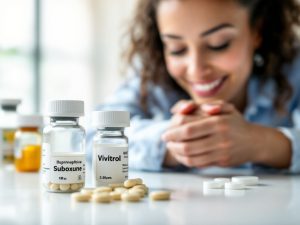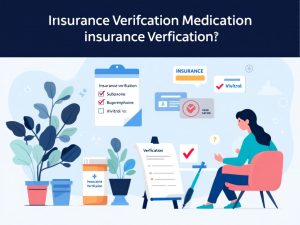Understanding SUD partial hospitalization
If you or a loved one is seeking help for a substance use disorder, exploring a SUD partial hospitalization program can be a transformative step. This approach offers structured care for those who need more than traditional outpatient therapy but do not require 24-hour supervision. At Epic Health Partners, our commitment is to provide you with individualized plans that address your unique challenges and equip you with the support necessary for lasting recovery.
A partial hospitalization program (PHP) for substance use disorders sits in the middle of the treatment continuum established by the American Society of Addiction Medicine (ASAM). Classified as Level 2.5, it bridges the gap between intensive inpatient programs and standard outpatient care. This structured environment allows you to immerse yourself in daily therapy sessions and comprehensive care without the need for overnight stays. You are encouraged to practice recovery skills in your usual living environment, which means you can return home at the end of each day and immediately apply the insights gained during treatment.
The professional team at Epic Health Partners is here to walk alongside you, addressing the mental, physical, and emotional factors behind addiction. As you begin your healing journey, you can expect to engage with a wide spectrum of treatment modalities, such as group therapy, individual counseling, medication management, and holistic therapies. By integrating evidence-based interventions, our SUD partial hospitalization program focuses on more than just stopping substance use. It aims to provide real-life strategies that help you maintain sobriety, strengthen relationships, and rediscover hope in everyday life.
Exploring key advantages
Highly structured care
One of the most significant benefits of partial hospitalization is its structured nature. Research shows that programs offering six to eight hours of care five to seven days a week provide a robust framework for recovery. You attend scheduled sessions throughout the day, including evidence-based therapies that factor in your personal medical history, mental health, and social circumstances. This immersive design allows you to gain valuable coping strategies and consistent support while you stay connected to everyday life at home.
Because PHPs are designed to meet the specific challenges of substance use disorders, they provide space for discussing triggers, negative thought patterns, and personal setbacks. For example, if you encounter stress at home or at your job, you can bring these experiences to your therapy sessions the following day. Addressing these obstacles in almost real time helps you master practical coping skills that keep you moving forward. Additionally, you can benefit from group therapy sessions, where peers in similar situations offer supportive feedback and camaraderie. That sense of belonging—knowing you are not alone—can be a powerful motivator throughout your recovery.
Cost-effective treatment
Partial hospitalization programs tend to be more cost-effective than inpatient or residential care. While residential settings also offer high levels of support, they often require a greater financial investment and total removal from everyday responsibilities. By comparison, PHPs at Epic Health Partners can deliver many of the same interventions—such as individual therapy, group work, and medication assisted treatment—without adding the financial burden of meals, lodging, or round-the-clock clinical oversight. This ensures you receive the intensity of care you need to set your recovery on a solid foundation, while allowing you to maintain other responsibilities, such as family, work, or school.
Insurance providers often recognize the value of PHPs in preventing relapse and stabilizing patients, so they frequently offer coverage for partial hospitalization services. Before beginning any treatment, it is a good idea to check with your insurance provider to confirm what portion of care is covered. If you have any questions, our dedicated staff at Epic Health Partners is always ready to guide you through the insurance verification process.
Real-life skill application
SUD partial hospitalization programs allow you to return home at the end of each day, which can be an excellent opportunity to practice your developing coping mechanisms. If you begin a new grounding technique for stress management in a morning therapy session, you have an immediate chance to test it in your home environment that evening. By the next day, you can share your experiences and challenges with the treatment team, refining your approach based on real feedback and expert insights.
This real-life skill application often translates into a more sustainable recovery because you do not wait until after you have graduated from treatment to integrate new habits into your routines. You can strengthen your resilience day by day, gradually transforming your patterns of thought, emotion regulation, and interpersonal communication. When you do face setbacks, you have the reassurance of ongoing professional support to keep you motivated and on course.
Comparing with other levels of care
Partial hospitalization vs. inpatient treatment
Inpatient or residential programs provide round-the-clock supervision, which may be essential for individuals with acute medical concerns or those at significant risk of harm to themselves or others. However, for many, transitioning to an environment that offers ample therapy time during the day while returning to the comfort and familiarity of home at night is a worthwhile alternative.
Partial hospitalization still delivers many of the same therapeutic methods found in residential care, including individual and group counseling, medication-assisted therapies, and evidence-based approaches like cognitive behavioral therapy. The main difference is that you typically do not stay overnight at the treatment facility. This option supports those who have already completed detox, do not require close medical supervision, or have a strong support system in place at home.
Partial hospitalization vs. intensive outpatient programs
Intensive outpatient programs (IOPs) share many similarities with PHPs, but they usually involve fewer treatment hours per day. An IOP might require nine or more hours of therapy per week, whereas a partial hospitalization program can span 20 to 40 hours or more. If you have a stable home environment and milder symptoms, an IOP might be sufficient. But if you are looking for a more comprehensive schedule that closely mirrors inpatient care without overnight stays, our SUD partial hospitalization program can be a powerful solution.
In fact, you may start with a partial hospitalization level of care and then, as you steadily achieve your goals, step down to an IOP or another form of outpatient treatment. By gradually decreasing treatment intensity, you have time to consolidate the gains you made in PHP, practice them independently, and continue receiving support as needed. This continuum of care is essential to preventing relapse and maintaining your progress.
Discovering our comprehensive approach
Tailored treatment from day one
At Epic Health Partners, your treatment journey begins with a thorough assessment. We evaluate not only the severity of your substance use disorder, but also any co-occurring mental health conditions, physical health needs, and personal goals. Using this information, our team collaborates to develop an individualized plan that emphasizes a supportive environment and addresses the root causes of addiction.
Our partial hospitalization program draws on multiple therapeutic modalities to meet your unique challenges. Sessions may include cognitive behavioral therapy, dialectical behavior therapy, group therapy, and motivational interviewing therapy. We also focus on holistic wellness support, such as yoga or mindfulness-based techniques, to complement evidence-based interventions. We want you to leave each day’s treatment feeling empowered to handle stressors and triggers that often stand in the way of recovery.
Alongside therapy, our medical professionals offer medication management to support your journey. Depending on your needs, medication assisted treatment (MAT) can reduce cravings and ease withdrawal symptoms. This aspect of care can be particularly useful if you struggle with opioid or alcohol addiction. Our team will carefully monitor your progress, adjust medications as necessary, and communicate closely with you about any side effects or concerns.
Emphasis on family and social support
We also encourage you to engage in family counseling mental health sessions and peer support groups. Relying on a robust network of supporters is one of the best ways to sustain long-term change. When loved ones understand the underlying motivations and challenges of your SUD, they can offer consistent emotional support, help you set healthy boundaries, and celebrate your milestones.
We invite families and friends to learn about substance use disorders, treatment goals, and relapse prevention planning. By extending care beyond the individual, everyone gains insight into how they can move forward together, creating more stable conditions for healing. Over time, these connections can help you feel more hopeful and less isolated, preserving motivation even after you have completed the program.
Ongoing care and skill-building
Recovery does not end when you graduate from a partial hospitalization program. Instead, we see your time in PHP as a foundation for long-term health and wellness. At Epic Health Partners, we offer additional services like:
- Intensive outpatient program iop
- Outpatient therapy
- Telehealth therapy services
- Case management sud
- Aftercare planning
Each of these services is designed to ease your transition and solidify new coping strategies. By offering a continuum of care, we help you keep the momentum of recovery going, so you can steadily gain confidence in your ability to manage your life with greater independence.
Finding your supportive environment
A place to address emotional needs
Our SUD partial hospitalization program is known for its empathetic and empowering environment. We understand that addiction often stems from emotional pain, trauma, or mental health conditions that have gone untreated for years. These underlying struggles can trigger deep self-doubt or shame that can be difficult to overcome alone. That is why we promote honest conversations about your experiences, guided by trained counselors who can help you reframe negative thought processes.
If you feel spiritually or psychologically distressed, you can benefit from additional therapies such as dialectical behavior therapy dbt or trauma informed counseling. We also incorporate group therapy mental health sessions that encourage sharing and collective problem-solving. When you see others battling similar challenges, you realize there is hope for overcoming them. This sense of mutual understanding bolsters your confidence, reminding you that you are worthy of help and capable of significant change.
Building healthy habits and lifestyles
Substance use disorders often disrupt many facets of your life, from sleep routines to self-care and nutrition. By taking part in our structured day-long therapy sessions, you gain more than knowledge about your emotional triggers—you learn practical ways to restore balance in your life. Embedding daily wellness habits (like journaling, mindfulness, exercise, or balanced nutrition) is an integral part of our approach. Together, we identify activities that resonate with you and how to adapt them for lasting improvements.
For example, you might find grounding exercises or deep breathing especially helpful when you feel anxious or have cravings. Or perhaps journaling helps you process difficult emotions that arise in your day. By revisiting these strategies in each session, you can refine them until they become part of your daily routine. Developing a healthy lifestyle not only boosts your mood and mental health but also strengthens your body, improving your overall resilience in recovery.
Addressing co-occurring conditions
Co-occurring disorders, or when mental health issues exist alongside substance use disorders, are more common than you might think. Many individuals with SUD may battle anxiety, depression, bipolar disorder, or PTSD. Our partial hospitalization program is designed to tackle these dual components simultaneously, so you can receive comprehensive care under one roof.
By collaborating with licensed psychiatrists, nurses, and counselors, we coordinate treatments that manage both realms of your health. This may involve medication adjustments, ongoing therapy, and close monitoring of your symptoms. Our co occurring disorders treatment approach is grounded in the understanding that treating mental health challenges in tandem with substance use is crucial for successful long-term recovery. Handling one while neglecting the other can leave you vulnerable to relapse. At Epic Health Partners, we emphasize harmony between mental well-being, physical health, and addiction recovery.
Taking steps to begin your journey
Verification and assessment
If you are ready to enroll in our SUD partial hospitalization program, the initial steps involve verifying your insurance coverage and scheduling a comprehensive assessment with our dedicated admissions team. During this assessment, we learn about your medical history, patterns of substance use, psychosocial needs, and the support system available in your home environment.
We follow guidelines set forth by the ASAM and other reputable institutions when determining if a partial hospitalization level of care is appropriate. We also make certain to consider any co-occurring mental health diagnoses that may influence your progress. If another level of care seems more beneficial—such as medically supervised detox or residential addiction rehab—we will guide you toward the most suitable options.
Creating your personalized treatment plan
After the assessment phase, our multidisciplinary team collaborates to craft a treatment plan that clearly outlines your recovery goals. We focus on building a balanced combination of therapy types, such as individual therapy mental health sessions, group therapy, holistic wellness support, and medication management. We also tailor skill-building and relapse prevention techniques to your lifestyle, ensuring that they are easy to implement once you leave our facility each day.
This patient-centered approach sets the stage for your future, giving you the best opportunity for sustained behavior change and renewed purpose. We believe in addressing the root causes of addiction, including unresolved trauma, chronic stress, grief, or family dynamics. With each session, you gain insight into these factors, learn to cope with them in healthy ways, and gradually replace old habits with more constructive ones.
Gaining confidence in your recovery
In a partial hospitalization program, each day offers the potential for new insights and achievements—no matter how small. You might realize you handled a trigger at home differently than before, or you spoke openly about a past trauma for the first time. These successes may seem modest in the moment, but they ultimately build upon each other, leading you toward a more fulfilling and stable life free from substance dependency.
As you move closer to your goals, you will work closely with your team to evaluate your progress and adapt your treatment plan. If you find that certain strategies or therapies are not resonating, we will modify them to achieve the best possible outcomes. Recovery is a journey unique to each individual, and your feedback is essential in ensuring that the care you receive matches your values and needs.
Frequently asked questions
1. What is a SUD partial hospitalization program?
A SUD partial hospitalization program provides structured, intensive daytime treatment for substance use disorders without requiring overnight stays. You attend therapy sessions, group counseling, and other recovery-focused activities for several hours daily. Then, you return home in the evening, allowing you to practice your newly acquired coping skills in real-world situations.
2. How does partial hospitalization differ from inpatient rehab?
Inpatient rehab provides 24-hour supervision and on-site living arrangements. Partial hospitalization offers many of the same therapeutic interventions but lets you go home at night, making it a good choice if you have a supportive environment and do not need round-the-clock clinical care.
3. How do I know if I qualify for a PHP?
Qualifying for a partial hospitalization program typically involves an assessment of your medical history, withdrawal risk, mental health status, and family or community support system. You must also meet diagnostic criteria for a substance use disorder, such as those outlined in the DSM. Our team at Epic Health Partners can help determine whether you need this level of care or a different option.
4. Does insurance cover partial hospitalization programs?
Many insurance plans recognize the value of partial hospitalization programs. They often cover all or part of the therapy costs. Before beginning treatment, it is wise to contact your insurance provider or allow our staff to assist you with verification and clarify any out-of-pocket expenses.
5. How long should I stay in a PHP?
The recommended duration can vary from a few weeks to a few months. Research suggests that programs of at least 90 days show higher rates of long-term success, though your exact timeline depends on factors like the severity of addiction, progress in therapy, mental health landscape, and ongoing support needs.
Begin your next chapter
Choosing Epic Health Partners for your outpatient behavioral health, psychiatric, and substance-use care needs is a step toward a more stable and fulfilling future. Our SUD partial hospitalization program offers a tailored treatment plan, a supportive environment, and the comprehensive care needed to address not just your substance use, but also the potential mental or emotional issues driving it. Through a combination of evidence-based therapies, ongoing professional supervision, and real-life skill application, you can set a course for meaningful, lasting recovery.
Recovery is a personal journey that requires courage and consistent effort. With our team by your side, you have the chance to face each challenge in a safe, structured setting, surrounded by professionals who want to see you succeed. We believe in offering the support necessary for lasting recovery—one that allows you to rediscover hope and achieve the life you deserve. We invite you to explore how you can begin your next chapter in healing, and we look forward to walking that path with you. If you feel ready to take that first step, contact Epic Health Partners and learn how our SUD partial hospitalization program can help you start living a healthier, more empowered life.







